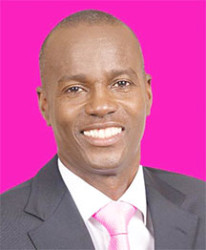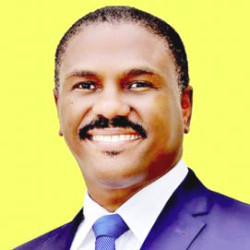PORT-AU-PRINCE, (Reuters) – Ruling party candidate Jovenel Moise and former government executive Jude Celestin led voting in Haiti’s Oct. 25 presidential election and will face each other in a run-off next month, according to official results announced yesterday.


The winner will succeed President Michel Martelly next February at the head of the Western Hemisphere’s poorest country. Moise, representing the ruling Parti Haitien Tet Kale (Haitian Party of Bald Heads), named after Martelly’s smooth scalp, won 32.8 percent of the vote, followed by Celestin with 25.2 percent.
A political newcomer, 37-year-old Moise owns a banana-exporting business in the north of the country, while Celestin, 53, is a Swiss-educated mechanical engineer who previously headed a government construction agency.
The pair came out on top in a field of 54 candidates, according to the president of the election council, Pierre Louis Opont, who declined to take questions from reporters after making the announcement.
In anticipation of possible disturbances, banks in the capital Port-au-Prince closed early on Thursday, and police officers set up positions throughout the city.
The results, delayed for two days due to accusations of election fraud, came as no surprise after Moise and Celestin mounted the best-financed campaigns.
Before the results were announced, third place candidate, Moise Jean-Charles, who won 14 percent, alleged ballots supporting him had been destroyed.
In fourth place with 7 percent was Maryse Narcisse of the Fanmi Lavalas (Lavalas Family) party of former, twice-overthrown president Jean-Bertrand Aristide.
Results for legislative elections also held Oct. 25 will be announced in the coming days, officials said. Turnout was low with only 1.5 million ballots cast out of 5 million registered voters in a landmark election that could cement democracy in the Caribbean’s most unstable democracy.
Martelly, a popular singer, oversaw the slow recovery from a devastating earthquake in 2010, but critics say he allowed corruption to run rampant and failed to resolve political divisions that led to parliament dissolving in January.
The Caribbean nation of about 10 million people has struggled to establish democratic rule after decades of dictatorship, military coups and election fraud.








